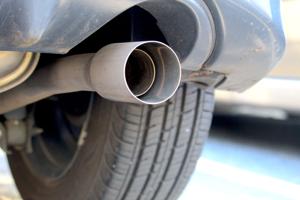Washington Legislature passes emissions bill that includes goal to phase out gasoline vehicle sales starting in 2030

(The Center Square) – By next decade, Washington could be the first state where the only new vehicles you can buy run on everything but gas.
Transportation accounts for some 40% of carbon (CO2) emissions in Washington. Growing the state’s supply of electric vehicles—or EVs for short—has been one of the most popular solutions in the Washington Legislature where state lawmakers are set to funnel billions into highway expansions. Time is running short for the state to meet its goal of cutting its CO2 emissions to 45% below 1990 levels by 2030—the year the “Clean Cars 2030” plan sets a goal to ban the sale of new gas-powered vehicles.
The legislation was passed as amendment to E2SHB 1287, a bill mandating residential electric stations, by a vote of 25-23 in the Senate and 54-43 in the House. Its 2030 target date takes effect only once 75% of registered vehicles in the state pay a still experimental vehicle miles-traveled tax intended to substitute the 49.8 cent gas tax EVs avoid.
The bill was backed by the Washington State Auto Dealers Association and the environmentalist group Coltura which hailed it as “the most aggressive state goal in the U.S. for moving to an all-electric future” five years ahead of California’s deadline to do the same. It builds on current state law pressing automakers to increase the number of CO2-free vehicles they sell in-state to 5% by 2022 and 8% by 2025.
State Rep. Peter Abbarno, R-Centralia, shared the opinion of his GOP colleagues on the House Environment Committee that HB 1287 goes well beyond common sense incentives.
“This is less about a recognition that there are going to be electric vehicles, and more of a recognition that people who will be building residential and commercial buildings are forced to spend that money,” Abbarno said in February.
Democrats have branded the bill as less of a radical intervention and more of a commitment to bring Washington in line with where the auto industry is headed.
“The choice in front of us right now is not about whether there will be more electric vehicles in our garages and on our streets,” said state Rep. Alex Ramel, D-Bellingham, the bill’s prime sponsor. “That’s coming. The question in front of us is whether we’re going to have the infrastructure to be able to charge them. This bill asks us to do it right the first time that will save building owners money over time.”
Since E2SHB 1287 was introduced in January, automakers all around globe have fast-tracked plans to embrace EVs. General Motors plans to go carbon-free by 2035. Ford will go EV-only in Europe by 2030. Volvo has pledged to do the same worldwide in 2030. Japanese auto giants Honda and Toyota will offer electric and hybrid options for all of their vehicles by mid-decade.
Industry leaders like Toyota president Akio Toyoda have shared concerns that the rapid adoption of EVs could overwhelm the world’s electric infrastructure, more than 60% of which was dependent on oil and natural gas in 2019.
“The current business model of the car industry is going to collapse,” Toyoda said at a December news briefing. “The more EVs we build, the worse carbon dioxide gets. When politicians are out there saying, ‘Let’s get rid of all cars using gasoline,’ do they understand this?”
EV adoption has been slow in the U.S. where the plug-in market has seen gains of less than 1% over the past decade. In 2019, the U.S.’s EV stock accounted for just 20% of the world’s plug-in fleet behind China’s 47% and Europe’s 25%. The cost of EVs, according to Bloomberg, is expected to fall as the market price per kilowatt-hour (kwH) for battery EVs nears $100 by 2023—the threshold analysts believe could put EVs in the same price bracket as their gas equivalents.
In 2020, Washington’s EV population was the second highest in the nation at 62,000 behind California’s fleet of 835,000 plug-ins. Since 2019, Washington has sweated the deal for EV adopters with tax rebates of up to $2,500 on plug-ins retailing for $45,000 or less. Urbanists say those incentives are too little, too late when most Americans are driving 12-year-old vehicles and losing whole days to traffic jams in cities like Seattle where more cars are tearing up aging roads and bridges.
“Clean Cars 2030” heads to Gov. Jay Inslee, who is expected to sign it into law this week before the state legislature is set to adjourn on Sunday.
Disclaimer: This content is distributed by The Center Square

